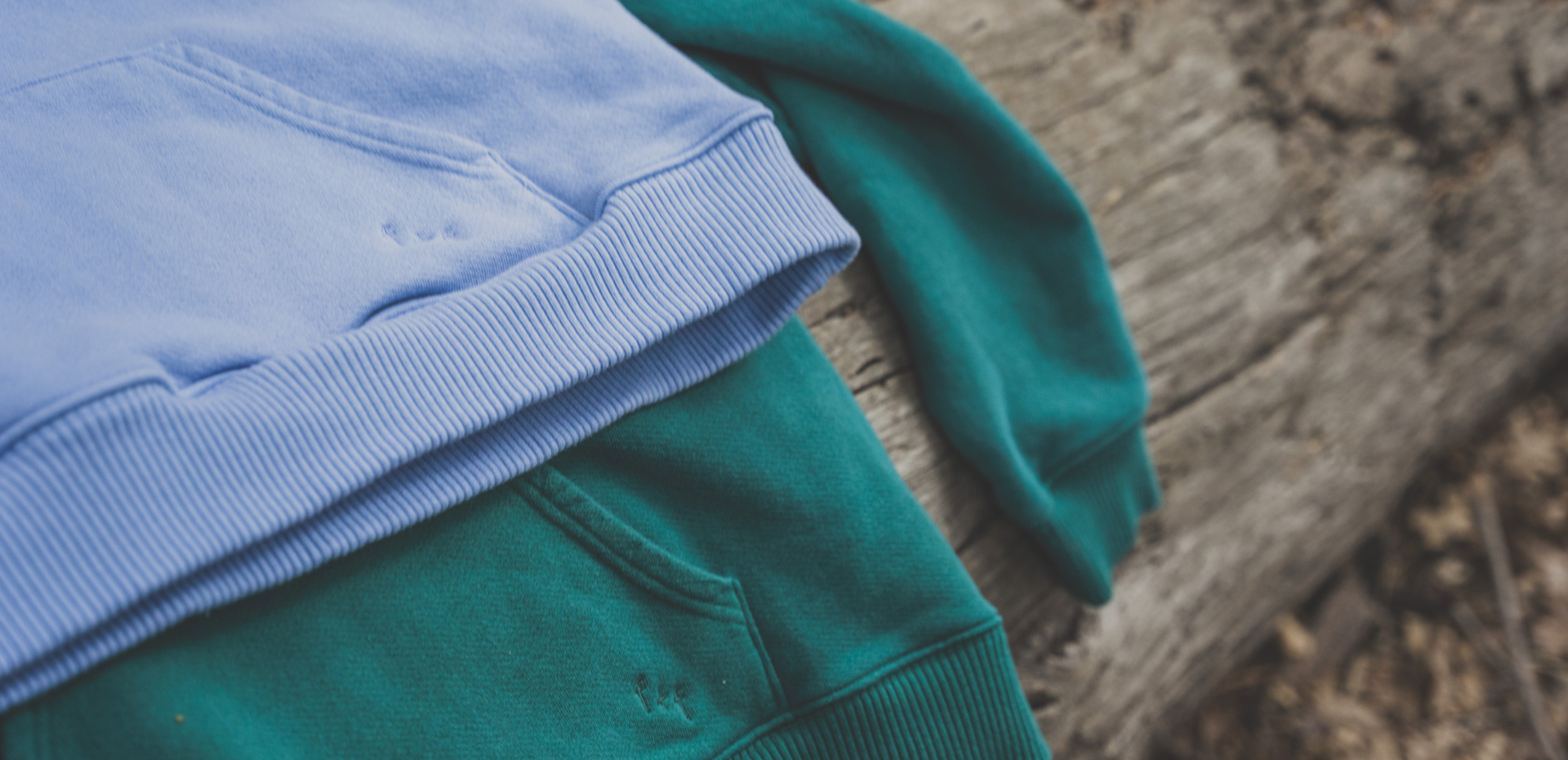Level 4.0: Meet 5 Women of Color Innovating in the Fashion Industry
May 22, 2024
Women Entrepreneurs Build Businesses for Impact and Inclusion: Part One
B Lab U.S. & Canada’s Level program recognizes that we don’t all start in the same place. Now in its fourth year, Level strives to support businesses that face systemic challenges to economic empowerment. The program also aims to expand the Certified B Corporation community with new and needed voices.
Through the Level program, businesses led by Black, Indigenous, or People of Color who also identify as women work alongside consulting organizations to measure and improve their impact, tell their story, adopt legal stakeholder governance, and pursue B Corp Certification. The program builds on the three pillars in B Lab U.S. & Canada’s Theory of Change: climate justice, racial equity, and a stakeholder-driven economy.
“As the Level program has grown from five companies in its first year to 15 in this fourth year, it continues to evolve to provide personal and business value to participants and add new perspectives and collaborators to the B Corp community,” said Alesha Hartley, who coordinates Level as the Senior Manager of Equitable Programs at B Lab U.S. & Canada. “The business leaders in this group are eager to move toward B Corp Certification and join other companies working to create a more inclusive and equitable economy.”
This year of Level includes 15 companies from a range of industries and locations in the U.S. and Canada. In the first of a three-part series, we introduce five of the Level 4.0 companies bringing positive change to the fashion industry — each in their own way. They include a localized clothing rental marketplace; a baby gear library; a gender and size-inclusive apparel line; a sustainability fashion/home consultancy; and a modest activewear collection.
Part two: Meet 5 Women of Color Leading Companies That Center Community
Part three: Meet 5 Women of Color Creating Unique Products with Purpose
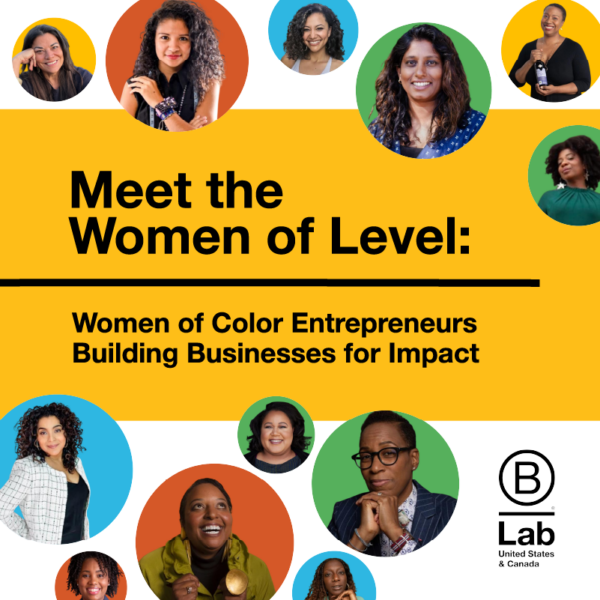
Meet the Women of Level
Learn more about business leaders building a more equitable and just economy in a new downloadable resource from B Lab U.S. & Canada.
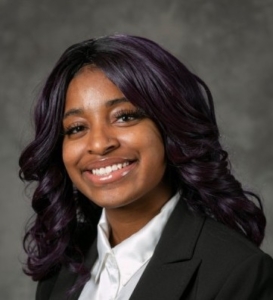
Milagros de Souza
Milagros de Souza, Founder and CEO of The Clothing Library
De Souza created The Clothing Library to help people save money, the environment, and space in their closets. The Clothing Library is built on a community committed to a more sustainable fashion future with the goal of changing our relationship with clothing as a society. “Sustainable fashion has so many barriers to entry, and we wanted to create a solution that democratizes access,” de Souza said.
De Souza said The Clothing Library is completely based on the local community. Each city operates as its own hub, with the goal of the business someday operating nationally. As a renter on The Clothing Library platform, customers only have access to items 10 to 15 miles away. “We created this idea because it is more sustainable, but there is an added benefit of supporting your local community,” de Souza said. “With this, we have built like-minded communities that all care about sustainable fashion and help our work.”
De Souza encouraged other entrepreneurs launching their own businesses, especially those who are Black, Indigenous, and other People of Color, to keep going. “There is no successful company whose founder did not think about quitting at least once,” she said. “The important thing is to stay focused. We already have so many things against us — don’t let yourself be another thing!”
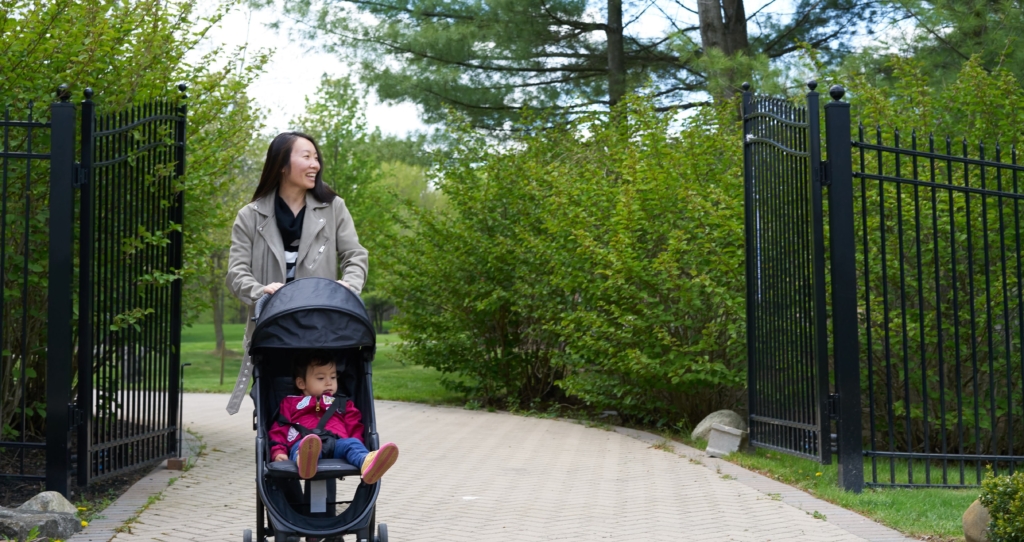
Bo Zhao
Bo Zhao, Founder and CEO of Baby Gear Group
Bo Zhao started Baby Gear Group based on her own frustrating experience with baby gear as a new mom. She loved getting things secondhand, but it was often difficult to find, so she ended up spending money on a lot of stuff she didn’t really need. “Everything was expensive, I wasn’t sure what I really needed, and there was so much noise and conflicting advice from influencers and the internet in general,” she said. “There were so many items that I never ended up using, or using only a short while, so many purchase mistakes and wasted money.”
She found herself wishing there was a way she could try out gear, use what worked for her baby and when she was done, it would magically disappear. In a true lightbulb moment, she realized she could just create this service as a baby gear library.
Baby Gear Group helps families save money, reduce clutter, and live sustainably. The company’s mission is to change the way families get items for their babies to one that prioritizes sustainability and community. Zhao said the company continuously looks for opportunities to promote sustainable parenting, including hosting regular events such as free baby clothing swaps. Zhao hopes to expand nationwide and broadly change consumer behavior so that when someone is expecting, instead of just defaulting to creating a baby registry, they first check out their local Baby Gear Group library.
She encourages other entrepreneurs launching their own businesses, especially those who are Black, Indigenous, and other People of Color, to just get started. She advised them to trust that they will be able to find the right mentorship or expertise to help them surmount each challenge they face. “You can plan in your head forever, but it’ll never be perfect,” she said. “You need to be really doing it, boots on the ground, to get the customer feedback and make the necessary changes to create a truly valuable offering to the customer.”
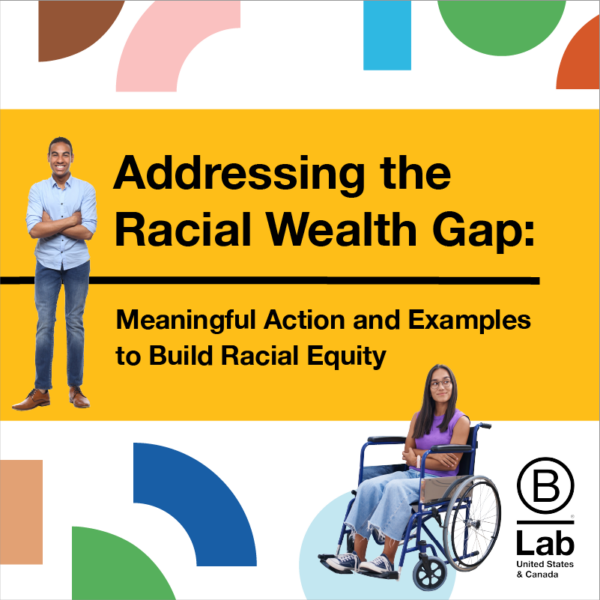
Addressing the Racial Wealth Gap
To help B Corps and other businesses advance racial equity in their everyday operations, B Lab U.S. & Canada created this downloadable guide. It includes explanations of systemic inequities that contribute to the racial wealth gap, links to resources, and policies and practices from the B Corp community.
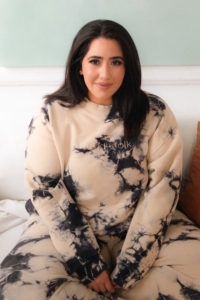
Alexa Reyes
Alexa Reyes, Founder of friend + folk
After years of fluctuating between standard and extended apparel sizing, Alexa Reyes craved a space where shopping for essentials was simple for everybody. The mission at friend + folk is to introduce equity and inclusivity in areas they don’t typically exist — fashion, shopping, and business — while using intentional, responsible practices.
The goal of friend + folk is to offer equally priced, non-gendered styles in a broad range of stigma-free sizes (12 to be exact), with financing partners that make shopping more accessible. “Our hope is that every individual, regardless of their size and identity, has the ability to shop with ease while limiting their carbon impact on the planet,” Reyes said.
Reyes said investment in the local community is in the brand’s DNA. That includes hiring local workers and responsible manufacturing in Los Angeles (with vendors within a 20-mile radius); utilizing and sourcing domestic, organic resources; and investing back into the community through its partnership with the nonprofit foster + fund, which provides systemically marginalized leaders with financial grants and mentorship. “We are looking to employ and improve our community while keeping our carbon footprint as small as possible,” she said.
As far as her advice for entrepreneurs who are launching their own businesses, especially those who are Black, Indigenous, and other People of Color, Reyes said don’t let limiting beliefs you may have been raised with get in your way. Instead, bet on yourself, prepare for sacrifice, and embrace your uniqueness. “Always have a point of view and don’t be afraid to lean into it,” Reyes said. “What makes us unique is our superpower.”
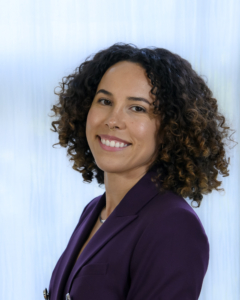
Lauren Hill
Lauren Hill, Co-Founder of Population
Lauren Hill said she and Population Co-Founder Catherine Tedrow have been collaborating for almost a decade. Their early work focused on supply chain dysfunction and human rights, which Hill said contributed to how and why they put people at the center of Population’s mission. “We met in grad school getting MBAs in sustainability and were instantly drawn to each other because of our shared passion for transforming the fashion industry,” Hill said. “We had been envisioning Population for many years before we created what it is today.”
At Population, they support clients in the fashion, jewelry, and home industries on their journey of business transformation by providing services to develop and implement integrated and holistic sustainability frameworks. Population’s organizational strategies include climate action, preferred materials sourcing (in line with regenerative agriculture); circularity; responsible sourcing and production; employee well-being; and justice, equity, diversity, and inclusion.
They see opportunity in an industry with a history of poor working conditions and wages and negative environmental impacts. “Our ultimate goal is to support our clients to adopt an approach to sustainability that moves away from extraction and exploitation and toward regeneration and equity,” Hill said.
Going forward, Hill said Population wants to partner with legacy and luxury clients that have the mandate and financial capacity to invest in their supply chain and product; work with and uplift businesses owned and led by Black, Indigenous, and other People of Color; and expand on its work to convene industry conversations for systems change across the value chain. As far as advice for other entrepreneurs, Hill said they should tap into local resources such as small business development centers and local banks or credit unions (she suggested browsing bankforgood.org for alternative banks). “Our small business development center contact has been so helpful,” Hill said. “We’ve gotten great advice on topics ranging from how to get a line of credit and paid family leave benefits in our state of work to basic tax questions and attorney and CPA recommendations.”
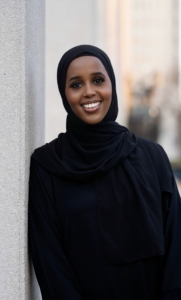
Muna Mohamed
Muna Mohamed, CEO and Founder of Kalsoni
Kalsoni is a social mission and for-purpose brand that offers activewear products and services designed to empower women and girls to engage in physical activity with maximum comfort, functionality, and confidence. Kalsoni creates inclusive activewear that caters to women and girls who prefer a modest fit, with the goal of increasing physical activity and sports participation among Muslim women and girls.
“We are dedicated to making modest activewear accessible for all girls and women everywhere so they can move freely, comfortably, and with style,” Kalsoni states in its mission statement. “And thus, the name Kalsoni, a Somali word for confidence.”
As a brand created by women for women, Kalsoni wants to ensure that women and girls who prefer a modest-fit style can enjoy and engage in the outdoors, gym, sports, and any other activities with maximum comfort, functionality, and confidence. Activewear products include wide-legged joggers, mid- and full-length tunics, hijabs, shawls, and long-sleeve shirts.
Meet previous Level leaders in this YouTube playlist.
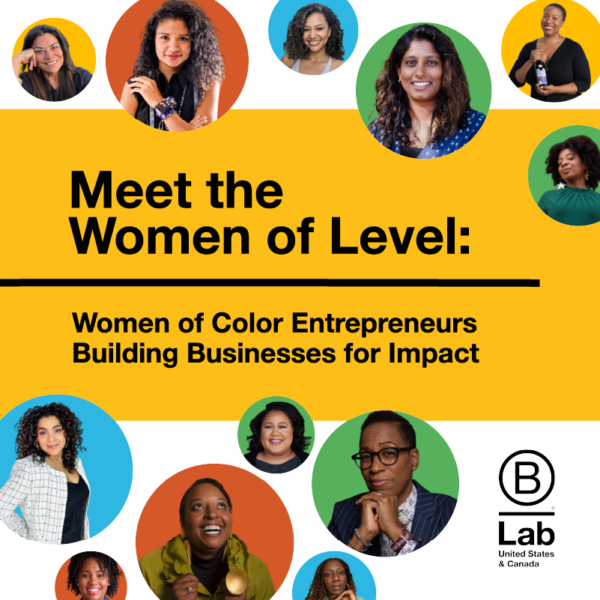
Meet the Women of Level
Learn more about business leaders building a more equitable and just economy in a new downloadable resource from B Lab U.S. & Canada.
-

Justice, Equity, Diversity, & Inclusion
Level 3.0: Partnering with Companies Led By Women of Color and Building the B Corp Community
Read More -
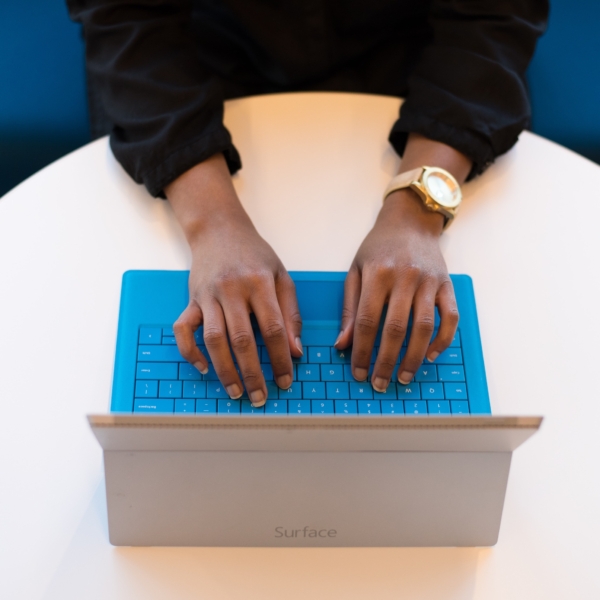
Justice, Equity, Diversity, & Inclusion
Level 3.0: Supporting Businesses Led By Women of Color and Growing the B Corp Community
Read More -
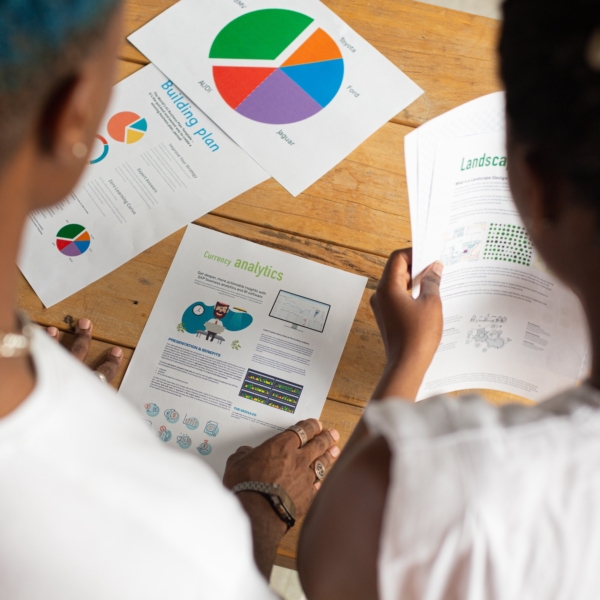
Justice, Equity, Diversity, & Inclusion
Level 2.0: Continuing the Conversation with Women of Color Changing the World
Read More -
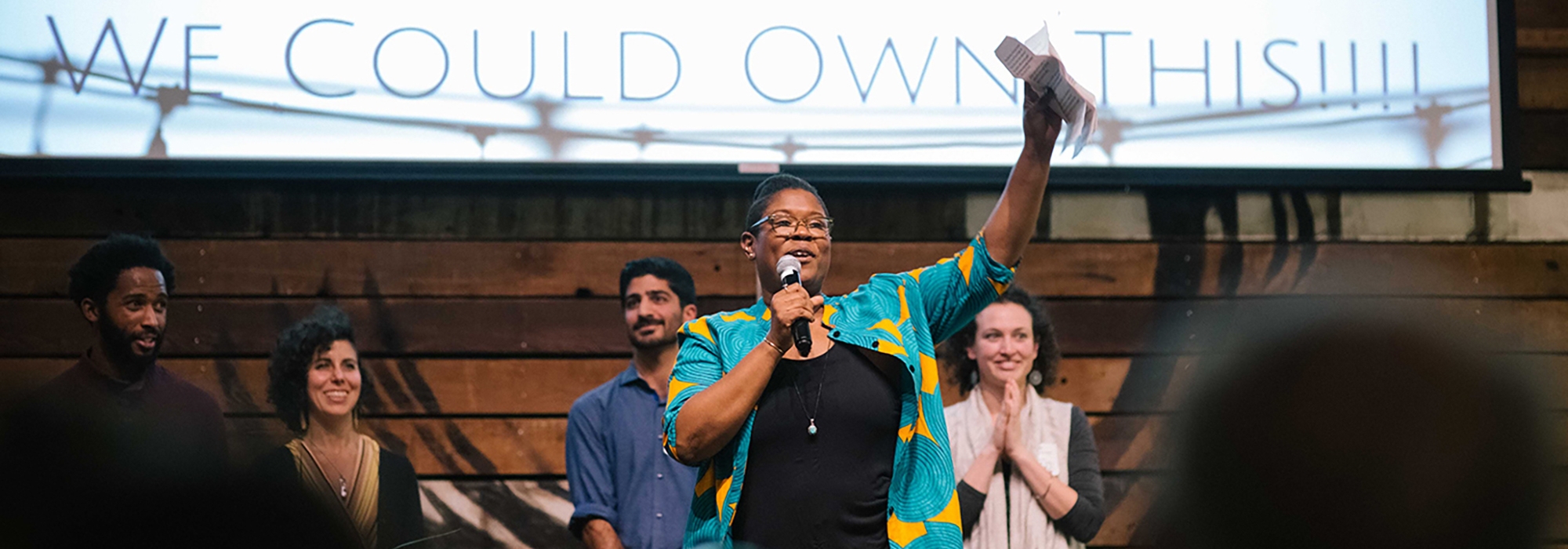
Business Strategy
Level Program Aims to Deepen Relationships with New and Needed Voices in the B Corp Community
Read More
Sign Up for our B The Change Newsletter
Read stories on the B Corp Movement and people using business as a force for good. The B The Change Newsletter is sent weekly.
